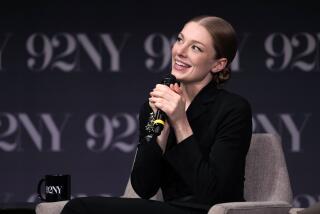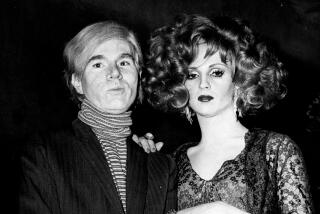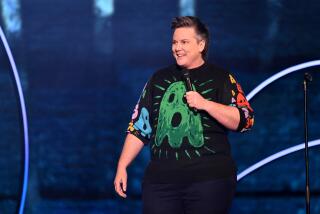Review: Multidimensional ‘Framing Agnes’ elevates trans voices from the past
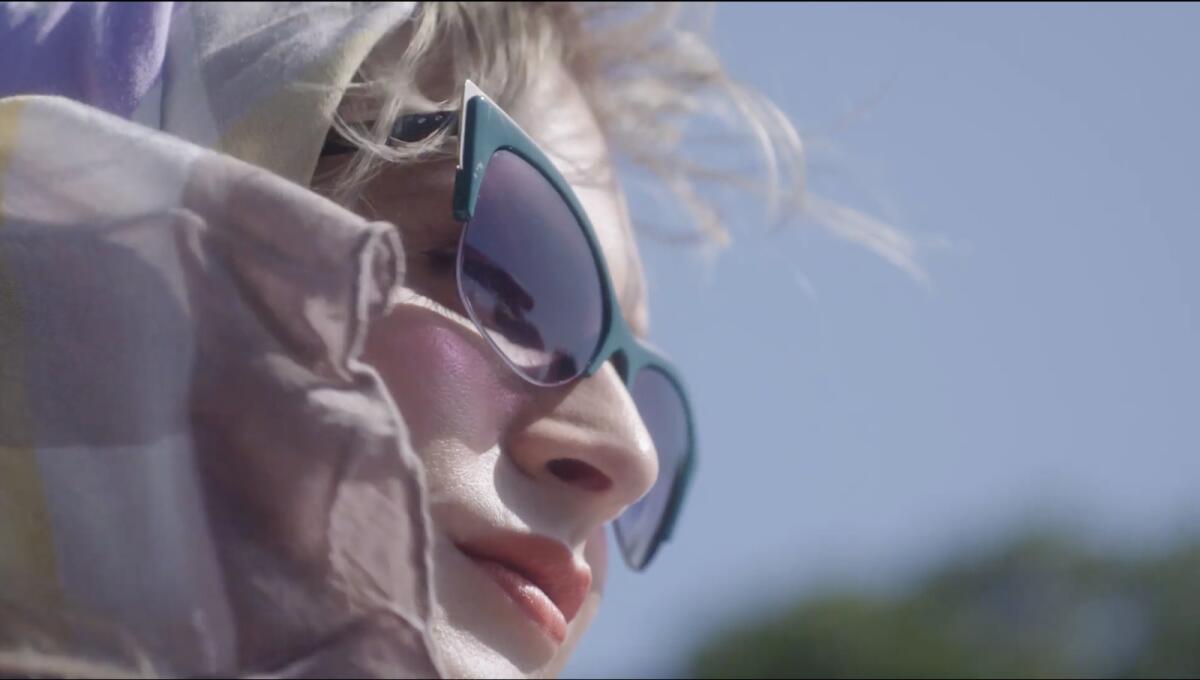
The docudrama “Framing Agnes” is a fascinating, multidimensional, mosaic-like glimpse at transgender life from the 1950s to today as interpreted by — and through — a group of transmasculine and transfeminine performers and creatives and one uniquely impressive academic.
Director Chase Joynt and his co-writer, Morgan M. Page, structure this brief but enlightening film around unearthed transcripts from a UCLA gender studies clinic conducted in the late 1950s and early ’60s by professor and sociologist Harold Garfinkel. He interviewed an array of trans men and women about who they were — emotionally, physically, sexually — and how they got there. (The doc is a feature-length expansion of Joynt’s same-named 2019 short, which was co-directed by Kristen Schilt.)
The best known of Garfinkel’s conversations was with the pseudonymous Agnes (portrayed in reenactments by multimedia artist and TV producer Zackary Drucker), a pioneering trans woman who artfully used the study (some might say “gamed the system”) to gain access to then-elusive gender-affirming healthcare.
Over time, Agnes became a transgender icon, as did Christine Jorgensen, who’s seen in archival footage from 1952, when she became the first American widely known for undergoing (what is now called) gender confirmation surgery — and, as pointed out here, was the most famous woman in the world that year.
The film cleverly re-creates a black-and-white, throwback-style TV talk show, with Joynt depicting Garfinkel as the program’s interrogating host. In addition to questioning self-possessed secretary Agnes, “Garfinkel” interviews other trans subjects such as Georgia (played by “Pose” actress Angelica Ross), a Black woman from the South; L.A. community ambassador Barbara (writer-actress Jen Richards); the working-class Denny (TV and film director Silas Howard); isolated writer Henry (poet and writer Max Wolf Valerio); and 15-year-old Jimmy (writer Stephen Ira, the 30-year-old son of Warren Beatty and Annette Bening). The cast effectively, if at times a bit self-consciously, uses Garfinkel’s original UCLA transcripts to reproduce these probing discussions, which smartly never overstay their welcome.
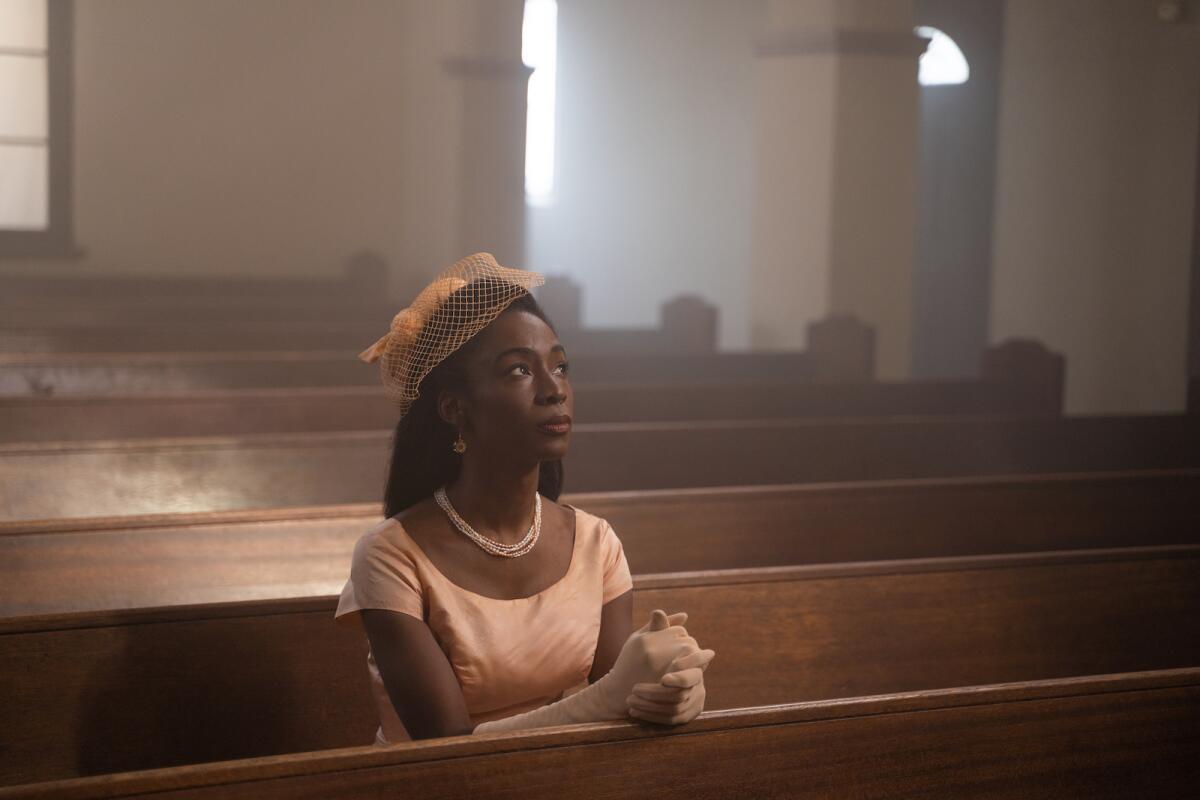
The performers also nicely reconstruct bits of their characters’ worlds outside the gender study. Speaking as their real selves, they engage in candid chats with Joynt about the complexities and realities of trans life and their own singular journeys. Ross’ perspective on how Black women have so often been the face of the transgender movement yet remain the ones most at risk is particularly illuminating.
The troubling paradox of visibility versus invisibility, especially for trans women of color, is further exemplified via a clip from Katie Couric’s clumsy 2014 daytime TV interview with “Orange Is the New Black” transgender actors Laverne Cox and Carmen Carrera. Couric’s invasive questioning prompted Cox to inform her that “the preoccupation with transition and with surgery objectifies trans people.” (Lesson apparently learned, a few years later Couric took a deeper, more respectful dive into the topic in the National Geographic Channel documentary “Gender Revolution.”)
The film’s highlight, however, is an interview with Jules Gill-Peterson, a transfeminine historian and the author of “Histories of the Transgender Child.” She provides a deeply insightful and articulate commentary throughout that echoes and expands upon what Joynt and his cast discuss about both trans history and the ways in which trans people navigate contemporary society. She’s a terrific spokesperson.
Joynt took a not dissimilar filmic approach in his fine 2020 documentary “No Ordinary Man,” which shined a light on transmasculine 1940s and ’50s jazz musician and bandleader Billy Tipton. Although that movie focused on one lead character, it also employed a vibrant group of trans voices to help bring Tipton’s captivating tale to life.
“Framing Agnes” continues Joynt’s vital and original feature explorations of trans culture and makes for a strong companion piece to “No Ordinary Man.”
'Framing Agnes'
Not rated
Running time: 1 hour, 15 minutes
Playing: Laemmle NoHo 7, North Hollywood
More to Read
Only good movies
Get the Indie Focus newsletter, Mark Olsen's weekly guide to the world of cinema.
You may occasionally receive promotional content from the Los Angeles Times.
